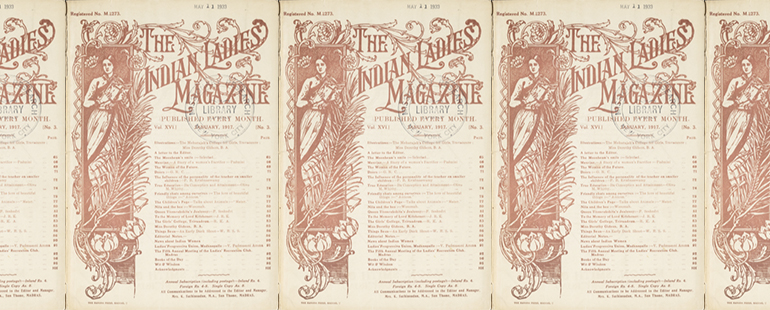Rokeya Sakhawat Hossain’s 115-Year-Old Feminist Utopia

Since I first read Rokeya Sakhawat Hossain’s short story, “Sultana’s Dream: A Feminist Utopia” many years ago, I find that it is one text to which I continually return year after year. Hossain was a writer and reporter born in present-day Bangladesh who focused particularly on injustices against women. “Sultana’s Dream” was written in 1905 and celebrated by Roushan Jahan, who has translated much of Hossain’s work, as the first “self-consciously feminist” utopian story written in English by an Indian woman. Hossain has remarked that she wrote the story in revenge for the injustice of purdah, or the practice of secluding women from men in some Muslim and Hindu societies, as well as to practice her English writing skills. Despite its extreme brevity, “Sultana’s Dream” is a remarkable feminist text. In just a few short pages, Hossain swiftly demolishes the patriarchal social order of secluding women by imagining a world in which the purdah is reversed. Run entirely by women with the men conscribed to purdah, the feminist utopia in “Sultana’s Dream” is one without war, crime, disease, fossil fuels, political greed, and many of the social ills that plague our society. As people around the world increasingly see the faults in our systems of governance, healthcare, capitalism, and international affairs, I can’t help but return—with perhaps equal parts lightheartedness and gravity—to the lessons we might learn from Sultana’s world.
In this short story, which was first published in The Indian Ladies’ Magazine in Madras, Sultana describes lounging in her bedroom, not entirely sure if she has dozed off or not, when she notices a woman who resembles her friend Sister Sara in front of her. Sister Sara invites her to look at her garden, where Sultana is shocked to discover that there is no mud. She feels uncomfortable walking unveiled in public, but Sister Sara reassures her that there are no men present in what she calls “Ladyland,” as it is “free from sin and harm. Virtue herself reigns here.” As Sister Sara walks her through the town, she explains how the women have reversed the purdah and taken over governance, turning to science and knowledge to create a futuristic community without crime, bad weather, or economic strife. The two meet the queen of the land by traveling on an “air-car” powered by two gravity-defying hydrogen balls.
Most of the story consists of Sister Sara’s or the Queen’s descriptions of their utopic lives, condemning the systems of incarceration, violence, capitalism, and environmental degradation that rule Sultana’s world, which she attributes to the ignorance of patriarchal leadership. It is important to clarify that rather than idealizing a reversal of seclusion, it is quite obvious that Hossain wrote the male form of purdah as a satirical strategy to emphasize her view of it as a sexist practice. From this sardonic vantage point, she builds into her feminist utopia visions for society that have unmistakable echoes in their necessity even today.
One of the most remarkable aspects of the utopia in Ladyland is the use of science, technology, and education to harness renewable energy and practice sustainability. The women cook with solar heat and control the weather through a balloon with pipes kept above the clouds (the scientific explanation for this is too advanced for Sultana to understand). The women place a heavy emphasis on the importance of education, as it is through the competition of female scientists at two universities that these technological advances are made, all while the men are “busy increasing their military power.” Along with these sustainable advances, the women of Ladyland have eradicated medical ills and high rates of child mortality—Sultana notes that “they were not subject to any kind of epidemic disease, nor did they suffer from mosquito bites as we do. I was very much astonished to hear that in Ladyland no one died in youth except by accident.”
As we witness certain countries far outperform others in the success of their COVID-19 containment efforts, this last point hits a strikingly familiar chord—the correlation between female leadership and governments’ more effective responses to healthcare access, housing rights, testing, and financial support is an undeniable pattern, to say the least. Additionally, as long-standing disillusionment with capitalism becomes exceedingly widespread, Hossain’s emphasis on natural sciences reveals another eerily applicable critique of our society. The Queen informs Sultana that the women of Ladyland “do not covet other people’s land, we do not fight for a piece of diamond though it may be a thousandfold brighter than the Koh-i-Noor, nor do we grudge a ruler his Peacock Throne. We dive deep into the ocean of knowledge and try to find out the precious gems [that] Nature has kept in store for us.” By rejecting jewels, diamonds, and land expansion, Hossain gives readers a glimpse of the threads of anti-capitalist and anti-imperial logic that suffuse her feminist utopia, and which so many of us are exponentially finding resonant today.
In this same vein, Hossain’s story reveals itself as stridently anti-military: the women once again use nature’s power to overcome a military invasion rather than employing an army. When inquiring how the women managed to get the men to agree to purdah, Sultana finds out that a military invasion of their land decimated the male population and was poised to completely take them over when the female scientist, referred to as Lady Principal, who had harnessed the sun’s heat managed to triumph over the invasion without any further deaths on either side. Asking the men to “retire into zenanas for the sake of honor and liberty” while the women emerged to try their hand at defeating the army, Lady Principal and thousands of her students “marched to the battlefield, and arriving there directed all the rays of the concentrated sun light and heat toward the enemy,” effectively driving them out without gunfire or bloodshed. They apply the same ethic to their local law enforcement, forgoing a traditional police or magistrate system and simply depending on the community to keep each other in check. Sultana praises their non-carceral methods, “as you gained a decisive victory without shedding a single drop of blood, you could drive off crime and criminals too without much difficulty!” As magical and idealistic as this utopia may sound, behind the fantasy, Hossain’s tale insists on the value of a non-militarized, science-based, and sustainable approach to social order.
Within the history of this utopia’s birth, one short paragraph on the conflict that sparks the military invasion by their enemy, in particular, stands out to me as a contemporary reader: “Soon afterward certain persons came from a neighboring country and took shelter in ours. They were in trouble, having committed some political offense. The King, who cared more for power than for good government, asked our kindhearted Queen to hand them over to his officers. She refused, as it was against her principle to turn out refugees. For this refusal the King declared war against our country.” In stark contrast to the refugee crisis of our current world, and in which many countries, foremost the United States, have exploited the global pandemic to bolster xenophobia, refuse basic rights to migrants, and shut down immigration, I almost cannot believe that “Sultana’s Dream” was written 115 years ago. That this event precipitates the reversal of purdah and ensuing establishment of feminist social order marks a significant political statement—Hossain’s feminist utopia is founded originally on the refusal to endanger refugees and political prisoners and on an insistence on the protection of displaced peoples, an ideal that unfortunately seems only far too radical for our contemporary world.
It feels truly surreal to look back at a short story written over a century ago that directly critiques the ills of government, healthcare, violence, and human rights violations that inundate our current society. “Sultana’s Dream” alludes to some of the most pressing contemporary global crises—epidemic disease, human displacement, overdependence on non-renewable energy, militarization of local police forces, and the carceral mindset, to name a few. Unfortunately, it seems very little has changed since 1905. While reading Hossain’s feminist story today emphasizes just how long and arduous the battle against patriarchy and capitalism has been, it is through her writing and others’ like it that we are reminded of the foundational work of feminists across history and the globe that has paved the way for our current discourse, and whose visions we would do well to heed.



